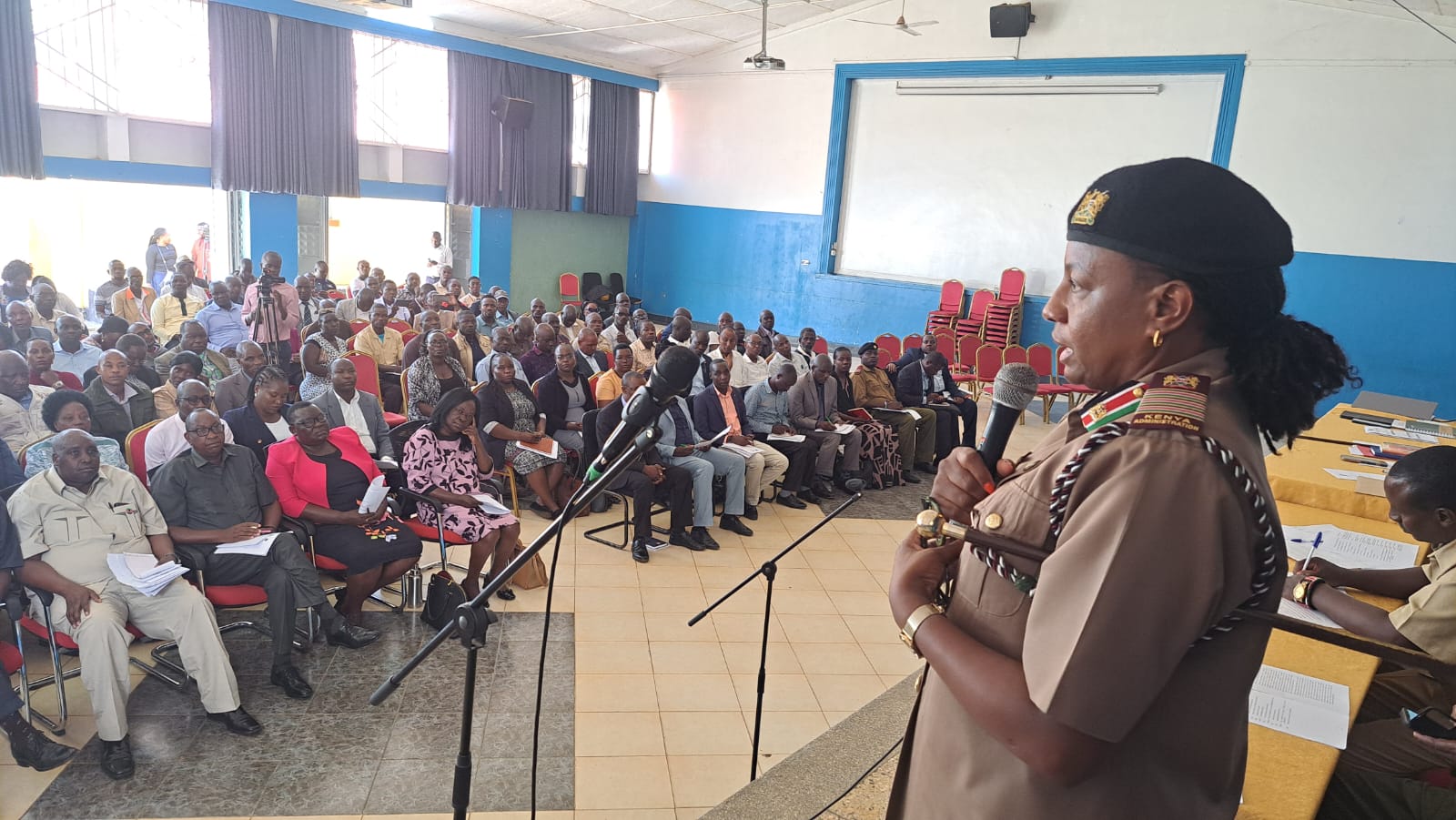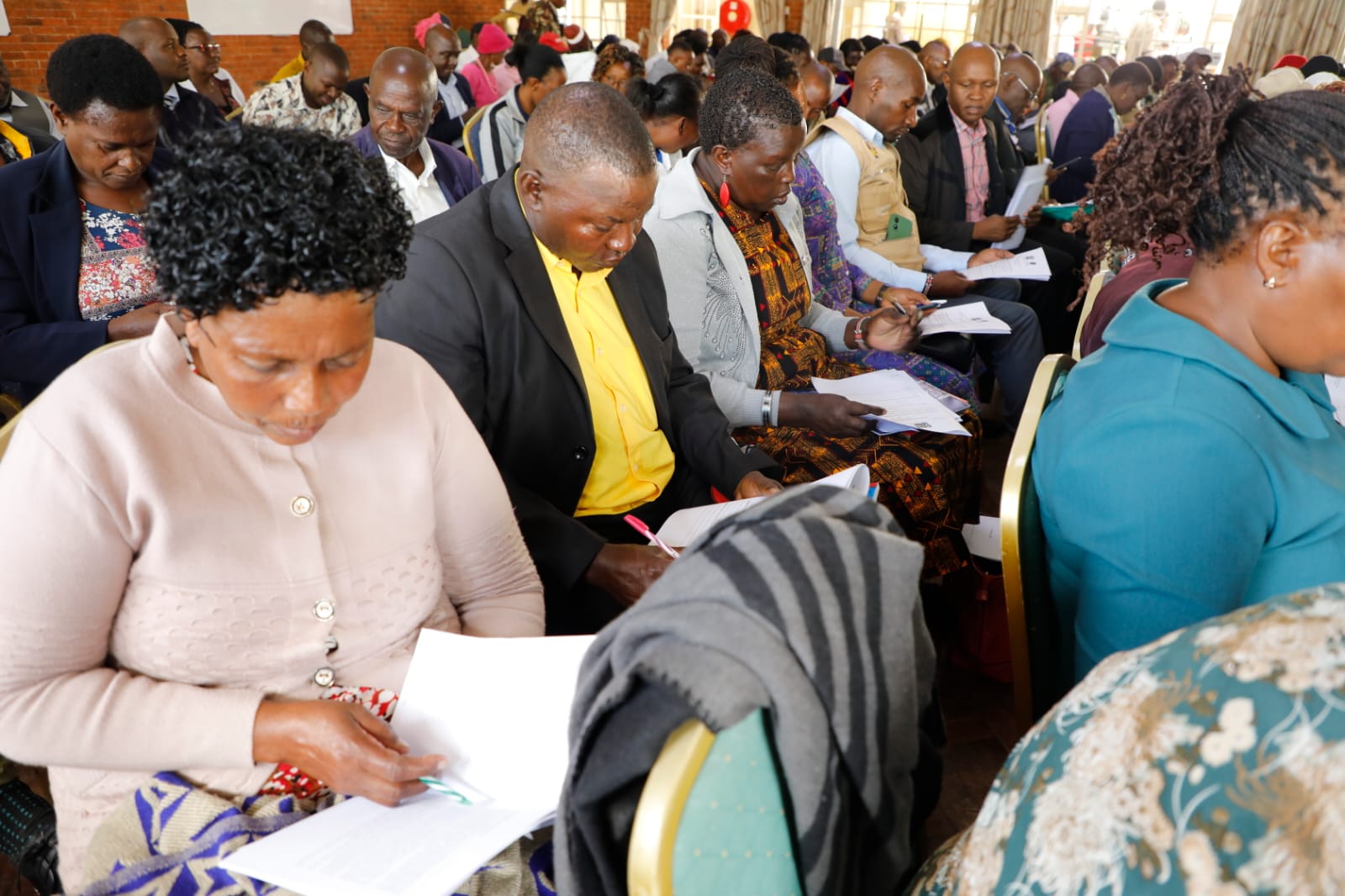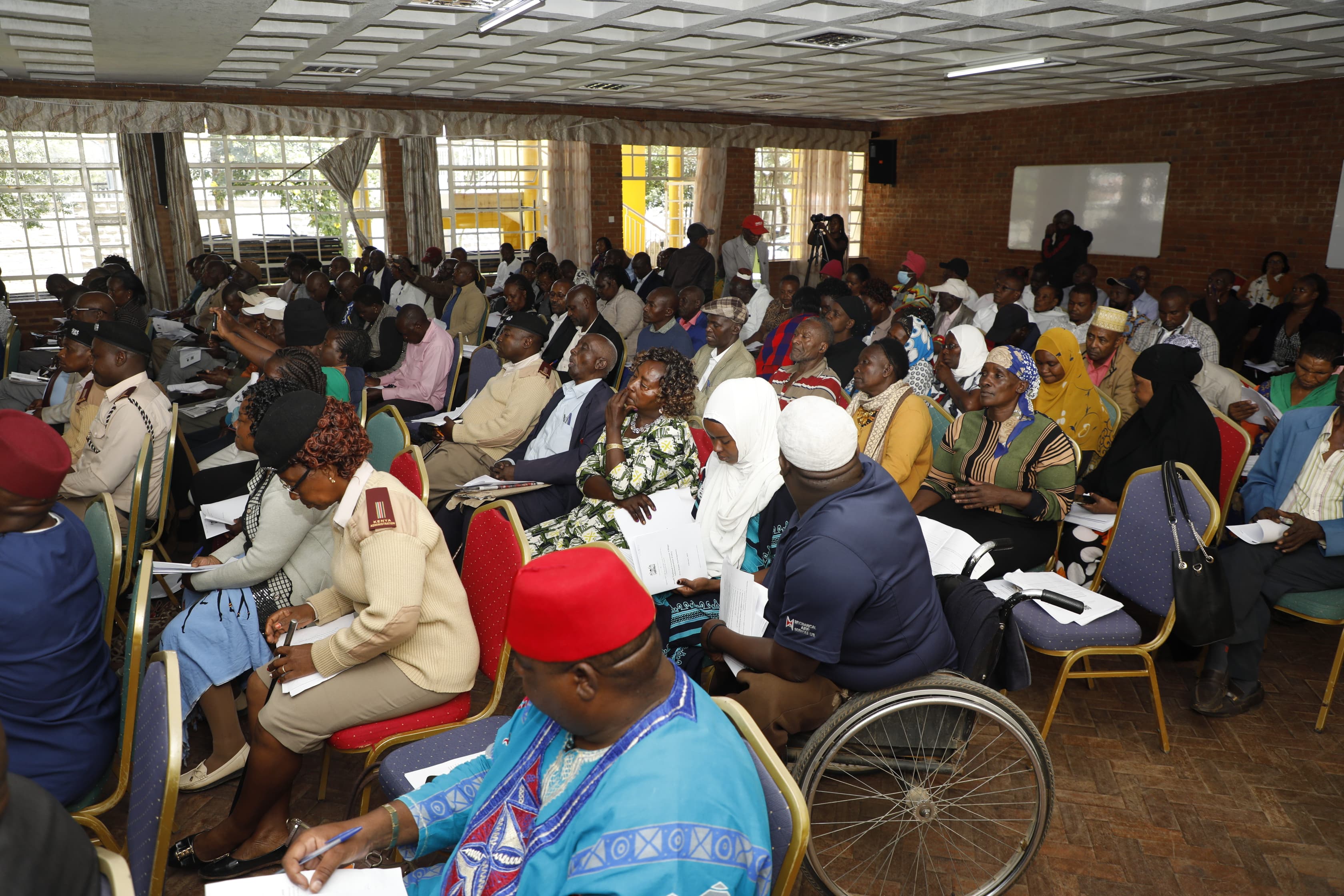Roles and responsibilities of village elders
State has invited public views on Village Elders Policy
The policy seeks to enhance decentralisation of government services to the grassroots
In Summary
Residents across several counties have praised the draft Policy on National Government Village Administration as a transformative initiative for community development and coordination at the village level.
Village elders, though not officially part of the civil service, have long functioned as essential link between the State and local communities.
They often mediate family feuds, resolve land disputes, report criminal activity, and ensure the smooth implementation of government directives at the grassroots.
In many rural areas, they are more trusted and accessible than formal authorities. However, the lack of a legal framework has left their role informal, inconsistent, and vulnerable to abuse or political manipulation.
According to the Ministry of Interior, the new framework will establish clear criteria for the appointment of village elders, define their roles and responsibilities, and introduce mechanisms for capacity building, supervision, and possible stipends or allowances.
The policy seeks to enhance decentralization of government services to citizens’ up to the grassroots level.
It will also integrate them more closely into the national administrative hierarchy, giving them a formal voice in local and regional governance matters.
In the Nyanza region, the residents welcomed the government's move to formalise the role of village elders, terming it a long-overdue recognition of their vital role in grassroots governance and community cohesion.
Speaking in Kisumu during a public participation meeting on the Village Elders Administration Policy and the National Government Coordination (administrative units) Regulations 2025, participants underscored the critical role played by village elders at the grassroots level calling for their recognition and proper remuneration.
Nyanza Regional Commissioner (RC) Flora Mworoa who officially opened the consultative forum, said the move was a historic milestone in local governance, noting that village elders have for decades served their communities without formal appointment, remuneration, or recognition.
“For far too long, village elders have been the silent pillars holding up our local administrative structures. They are our first responders when there is conflict, our community peacekeepers, and the eyes and ears of government in the villages. We are grateful that this development has come during our time," she said.
Mary Atieno, a village elder from Siaya County, said village elders are often the glue holding communities together but work under difficult circumstances as volunteers.
“Whether it’s a land dispute, domestic conflict, or a case of theft, it’s the village elder who is called before anyone else,” she said.
 Nyanza Regional Commissioner (RC) Flora Mworoa addressing participants during a public participation meeting on the Village Elders Administration Policy at Mama Grace Onyango Social Hall in Kisumu./KNA
Nyanza Regional Commissioner (RC) Flora Mworoa addressing participants during a public participation meeting on the Village Elders Administration Policy at Mama Grace Onyango Social Hall in Kisumu./KNA
Recognition by the government with clearly defined roles, she said, will give them power to act with confidence and legitimacy.
David Ochieng, a village elder from Migori, echoed similar sentiments, but urged the government to accompany the policy with proper training and support.
“Recognition is good, but we must also equip them with the tools they need, including basic legal knowledge, human rights principles, and training in mediation,” he said.
This, he said, will enable them to administer their duties within the confines of the law and at the same time project a positive image of the government.
Jacob Omondi, a retired Chief said the village elders were the glue holding the government's national administration together, calling for their proper remuneration in tandem with the key role they played.
Omondi said the policy should spell out clearly who should be appointed to the role of a village elder, adding that priority should be given to those already serving.
"We must be very clear on this because there are those who are proposing the government to employ village elders from the age of 18 years and pay them a salary. However, there are some very complicated issues within the community that an 18-year-old cannot resolve," he said.
Francis Nyanchama from Kisii county said the government must start by absorbing the existing village elders and integrating them into the government payroll so that they are motivated to continue serving.
"These people have suffered for many years. They must be given pay slips so that they can also access loans like other civil servants for self-development," he said.
The forum drew hundreds of participants from Kisumu, Siaya, Homa Bay, Migori, Kisii and Nyamira counties, most of whom praised the move as a recognition of the critical yet often overlooked role elders play.
In Machakos, residents also praised the draft at a Public participation forum that included village elders, youths, civil society and opinion leaders from the Lower Eastern region of Machakos, Makueni and Kitui at the Machakos University.
The County Commissioner Josephine Ouko, hosted the forum, aimed at engaging village elders in discussions to onboard them into the National Governance Administrative infrastructure.

Ouko added that the facilitation, recognition and inclusion of village elders is set to improve relations and coordination between the national government and communities at the grassroots level.
The policy aims to establish clear guidelines, structures, and processes for governance in village operations, ensuring they are run according to the government agenda and facilitating village elders.
One of the participants and youth leader, Mohamed Abdul from Machakos, hailed the gazettement and mapping of villages as proposed in the draft policy, which will help in establishing and developing communities.
 Participants from lower Eastern region of Makueni Machakos and Kitui during the public participation forum at Machakos University on draft policy on National government village Administration. Photos by Anne Kangero./KNA
Participants from lower Eastern region of Makueni Machakos and Kitui during the public participation forum at Machakos University on draft policy on National government village Administration. Photos by Anne Kangero./KNA
Mohamed reiterated the importance of understanding the clear roles and responsibilities of village elders, where the policy intends for them to work under assistant chiefs and participate in the resolution of disputes within communities, thus encouraging decentralized decision-making.
Nzomo Mutua from Kitui commended the efforts of the government in facilitating village elders by providing a framework for their facilitation, which will empower village elders to manage community affairs and sensitizing villagers on government policies and programmes.
Members of the public drawn from across the North Rift region counties also submitted their views on the Draft.
The Ministry of Interior Undersecretary, Eric Kipkorir, who chaired the forum, pointed out that the government is keen to uphold the provisions of the 2010 Constitution’s national values and principles of governance that include participation of people, inclusivity, good governance, and sustainable development.
Speaking during the public forum held at the multi-purpose county hall, Eldoret, Kipkorir urged members of the public whose majority of whom were current national and county administrators, to submit their views, noting that they are very key in informing policy review and refinement to suit the needs of all citizens.
A village elder, Rose Alimlim from Turkana County, however, raised concern over the fate of the current village elder system, which has existed since pre-colonial times, noting that the government should consider their contribution to the society and that they should be considered in the new village administrative elder system.
Alimlim decried the education qualification requirement for the new system, which she regretted will see many village elders from pastoral communities not qualifying, and pleaded with the government not to consider their education, but their experience in dealing with communal conflicts and disputes through traditional mechanisms.
On his part, Willy Barasa from Baringo County proposed consideration of safety, life insurance, and retirement benefits for village elders, while Paul Ng’iro from West Pokot County called for facilitation of the village administrative systems in terms of establishing offices for village elders and giving them uniforms and motorbikes, among other necessities.
The National Council for Persons with Disabilities (NCPWD) Uasin Gishu County Coordinator Hellen Tuwei noted that the draft policy has not stipulated the requirements for PWDs to qualify for the village administration jobs, noting that they also have the ability to serve the community.
She also sought to know about the disciplinary mechanisms for the village administrative elders in case they are found on the wrong side of the law.
The Deputy Chief State Counsel, Ministry of Interior and the National Administration, Kepha Onyiso, assured the public their opinions on the draft policy will be put into consideration before coming up with the final draft.
The public participation forums on the Draft policy were held across other regions, including Nairobi, Nakuru, Garissa, Kilifi, Kisumu, Kitui, Kakamega, and Nyamira.
State has invited public views on Village Elders Policy